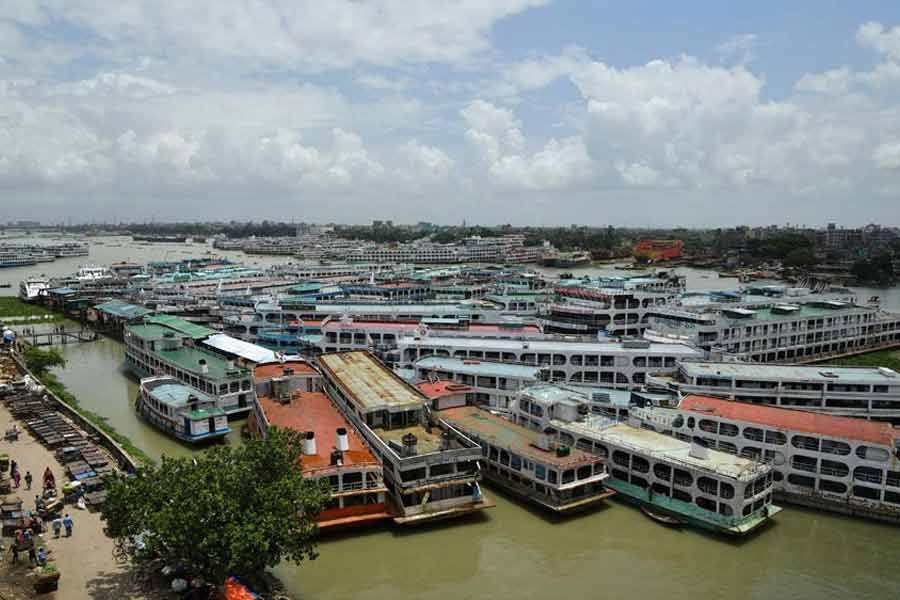The commissioning of the Padma Bridge has opened up unlimited possibilities in terms of communication, convenience, time saving and economy. Not only are people living on the western side of the river Padma expected to be its beneficiary but also the entire country will directly or indirectly reap its benefit.
However it may not be an unmixed blessing for all even in areas where people are ecstatic over the advantages the bridge has provided. For example, the launch operators --- owners of the vessels in particular, are apprehensive if they can continue their business as usual. The initial shock is quite telling. There is a severe dearth of passengers which has forced curtailment of the number of the launches. Reportedly, 18 launches used to operate on the Dhaka-Barishal route every day before the opening of the Padma Bridge. Now only eight launches ---four from each side ---operate.
Apart from Barishal, Bhola and Patuakhali terminals, 20 such terminals in different southern districts maintain waterways communication with Dhaka. Some of those may be at risk of ceasing to exist. Even drastic cut on fair has failed to attract passengers. The fair on the deck has been lowered to Tk 200 --- almost half the government rate fixed earlier --- on Dhaka-Barishal route, so has been the fairs of general cabins and VIP cabins. But yet passengers do not show up.
Surely the business slump is a cause for concern for launch operators. But launches do not carry passengers only, they also play the role of cargo vessels and on this count, the land transportation of goods will never match the cheaper rates of launches.
There is no reason why launch service will lose all its demands. Unless the weather is terribly foul, they offer safe journey. There is no violent jerk and passengers can have a good night's sleep before reaching their destinations on either side of the routes. In their initial enthusiasm and eagerness to experience the thrill of crossing the Padma river by road over the longest bridge in the country, travellers may spurn the water routes but gradually they will count costs as well as take stock of the advantages of waterways.
Nevertheless business for launches will never be as brisk as it was before. What is particularly concerning is that the three-storied launches have operation costs on a return journey, reportedly, in the range of Tk 0.35 million. Unless 75 per cent capacity of the BIWTA-approved limit is filled, the operation of such vessels cannot be profitable.
The difference between fairs of buses and launches will, however, always give the latter an edge over the former. A section of passengers will prefer a launch journey to a road journey because of this; another section will do so because of the smooth and jerk-free travel and yet another section of people will opt for launch journey because of comparative safer journey. Road journey is fraught with danger in this country for a number of reasons but on that count a journey on waterways is less risky and far more comfortable.
Even if all these plus points do not prove enough to bring passengers back, the vessels will have to improve their facilities by making adjustments and readjustments. Some innovative measures can increase the comfort zone even for the deck passengers. Quality of service can be greatly raised in order to attract passengers. No argument those who are in a rush will prefer a road journey anyway. But people, particularly the elderly, who can afford a night's comfortable passage of time will perhaps still take a launch journey. So, the future of water transport (launch) business may not be as bleak as it looks now.
nilratanhalder2000@yahoo.com


